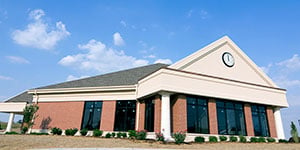Ally Bank Offers Free Anti-Malware Software
Recently I noticed Ally Bank was highlighting on its home page free anti-malware software. Malware is one of the most disturbing risks when you're using your computer for conducting financial transactions. When I was reviewing Prevx, I found this useful description of malware:
Short for malicious software, malware is designed to install on your computer without your consent. It's most commonly used to steal you information and login credentials, which can lead to ID Theft and financial crime.
Ally Bank is offering Ally Bank customers Prevx 3.0 for free. This is an anti-malware software that detects and removes malicious software from your computer. According to Ally: "As long as you have an account with Ally Bank there's: No cost to you - we'll never ask you to pay the $34.95 retail price. No strings attached - you won't be charged an annual renewal fee." To review the details of Prevx, log into your Ally account and go to the security center (security link at the top right of the page). When you're logged in, the security center will include a box on the left side that says "We're taking online security to the next level". Click on this, and you'll see Ally's Prevx page. Some important features mentioned on this page include:
- Works along with your existing anti-virus software
- Adds an extra layer of protection to your existing security software
- Runs automatic updates to help protect you against emerging threats
- Detects and removes malware on your PC such as spyware and trojans
I decided to give this a try. Two days ago I downloaded and installed Prevx via Ally's website. The download and installation was quick and easy. The only thing that wasn't obvious was to activate the license key. When you open the Prevx software, make sure you go to the license page to enter the key. This will ensure you are using all of the protection features of Prevx. Ally provides the key on the page that has the download link.
I haven't noticed any slow down in my system or any other effects from the software. It's hard to know how well security software is operating. PCMag.com has a Prevx 3.0 review where you can read some pros and cons. It mentioned two cons: "Cannot function without Internet connection. Cleanup left behind many file and Registry traces." Some of the user reviews reported "false positives" in which it flags benign programs.
Online Banking Security Guarantee
It should be noted that Ally customers receive an Online Banking Security Guarantee regardless if they download this extra security. According to Ally:
If you ever have an unauthorized transaction in Ally Bank’s Online Services, report it to us within 60 days from when we make your statement available to you – we guarantee you won’t be liable for the transaction.
This actually isn't unique to Ally. All banks are required by the Federal Electronic Funds Transfer Act to correct unauthorized transactions if you notify the bank within 60 days of the account statement on which the transaction appears (see FDIC Title VI).
What Other Banks Offer
Ally Bank isn't the only bank offering security software. ING Direct has been offering Trusteer Rapport since 2008. Like Prevx, Rapport is designed to go beyond the protection offered by anti-virus programs, anti-spyware and firewalls. When I reported on Rapport in 2008, a few readers felt it was too much like spyware. Also, there was concern that the software was just "marketing fluff."
Bank of America has long offered its online banking customers McAfee Internet Security software for free for 12 months. However, I always considered this to be a marketing strategy by McAfee since there will be an automatic renewal at the end of the 12-month free period.
My Take
I can't judge the usefulness or the intrusiveness of Prevx, but it appears to have advantages over the security software that ING Direct offers. Also, unlike what Bank of America offers, this Ally offer isn't just a discount on security software. According to Ally, there's "no strings attached".
Ally Bank may have made some recent mistakes, but they keep improving. I just hope they can keep their rates competitive and avoid being sold off to a megabank.
 What Is Bank Fraud? How to Recognize It, Avoid It and Report It
What Is Bank Fraud? How to Recognize It, Avoid It and Report It How to Open a Bank Account for a Minor
How to Open a Bank Account for a Minor How to Balance a Checkbook
How to Balance a Checkbook Retirement Savings: How Much Should I Save Each Month?
Retirement Savings: How Much Should I Save Each Month?


